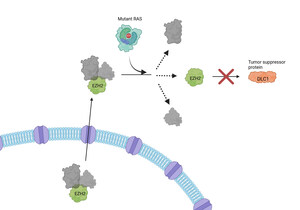By the National Cancer Institute
BETHESDA, Md., Nov. 22, 2013 /PRNewswire-USNewswire/ -- Editor's Note: The following article is part of the monthly Lifelines education and awareness print series that the National Cancer Institute provides to African American news and information outlets.
(Logo: http://photos.prnewswire.com/prnh/20111018/DC89117LOGO)
November is Lung Cancer Awareness Month. Lung cancer has been the leading cause of cancer deaths among African American men for decades and among African American women since the early 1990s. Christopher S. Lathan, MD, of the Dana-Farber Cancer Institute, who treats patients with the disease, discusses lung cancer among African Americans.
Does lung cancer affect African American men more than other groups?
Of all ethnic/racial and gender groups in the United States, African American men are the most likely to develop lung cancer and also to die from the disease. We don't know why that is. Smoking alone cannot explain the high incidence and mortality from the disease in African American men.
What causes lung cancer?
The main risk factor for lung cancer is tobacco use. However, smoking does not explain all cases of the disease. About 15 percent of cases occur in nonsmokers. More research is needed to understand the role of risk factors other than smoking.
Is lung cancer always fatal?
No. When detected at an early stage, lung cancer can be cured by surgery and other treatments. Unfortunately, the disease is frequently found at more advanced stages, when it cannot be cured. This is a tough disease to treat—we're curing only about 15 percent of people with lung cancer.
Do beliefs about lung cancer differ among different racial and ethnic groups?
My research suggests that African Americans are less likely than whites to think that changing their behavior or lifestyle would decrease their risk of developing lung cancer. This concerns me because getting people to quit smoking is critical for making progress against this disease.
What should the public know about smoking and lung cancer?
We stress two messages. First, if you smoke, the best thing you can do for your overall health is to stop. You don't have to quit on your own—help is available (such as the toll-free quitline 1-877-44U-QUIT). Second, if you smoke now or in the past, talk to your doctor about whether you should be screened for lung cancer based on your age and smoking history.
What do you hear about the disease from your patients?
Many African Americans in my clinics tell me that they never thought lung cancer would affect them or their community, even though the disease clearly has a large impact on their community. I also hear people say that there are no treatments for lung cancer, yet treatments are available.
Have treatments for lung cancer expanded in recent years?
We now live in an age of personalized medicine. We can identify subgroups of patients with lung cancer who are likely to respond to new treatments. These new therapies are often better at controlling cancer and have fewer side effects than traditional chemotherapy.
Are you optimistic about our ability to combat lung cancer in the future?
I am. In the future, we're going to detect more lung cancers at earlier stages, when they may be treatable. We're also making progress in treating lung cancer that has spread to other parts of the body. And, finally, fewer people smoke today than in the past. All of these things make me hopeful that things are going to get better with this disease. We just have a ways to go.
NCI leads the National Cancer Program and the NIH effort to dramatically reduce the burden of cancer and improve the lives of cancer patients and their families, through research into prevention and cancer biology, the development of new interventions, and the training and mentoring of new researchers. For more information about cancer, please visit the NCI web site at www.cancer.gov or call NCI's Cancer Information Service at 1-800-4-CANCER (1-800-422-6237). More articles and videos in the culturally relevant Lifelines series are available at www.cancer.gov/lifelines.
SOURCE National Cancer Institute
WANT YOUR COMPANY'S NEWS FEATURED ON PRNEWSWIRE.COM?
Newsrooms &
Influencers
Digital Media
Outlets
Journalists
Opted In





Share this article